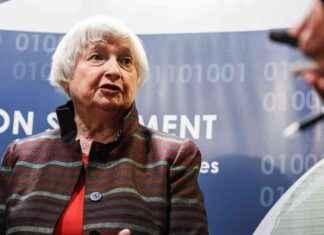The Government will include the increase in the 2024 Budgets, which will be approved in the first quarter, but will be applied from January
MADRID, 30 Dic. (EUROPA PRESS) –
The salary of the more than 3.5 million public employees will rise by a fixed percentage of 2% with the arrival of 2024, which may be raised by another additional 0.5% depending on the evolution of the harmonized CPI (IPCA).
This was agreed upon by the Government, CCOO and UGT in the ‘Framework Agreement for a 21st Century Administration’ signed in October 2022 and which contemplated a salary increase for the entire three years of up to 9.5%.
Specifically, the text of the agreement contemplates for the new year a fixed salary increase of 2% based on the salaries already increased in the previous year. Additionally, if the sum of the variation in the IPCA for the years 2022-2024 exceeds the accumulated fixed remuneration increase for those same years, an additional and consolidated remuneration increase of 0.5% will be applied, with effect from January 1, 2024. .
The salaries of public employees increased by 3.5% in 2022 and, for the moment, they have risen by 3% in 2023, since it remains to be seen whether they will receive, retroactively and consolidated, an additional increase of 0.5 % in the event that the nominal GDP in 2023 exceeds that projected by the Government.
If this GDP figure, which will not be known until well into 2024, exceeds the Executive’s estimates, the salary of public employees would have risen another 3.5% in 2023, the same as in 2022, and above that final amount of 2023 The fixed increase of 2% agreed for 2024 will operate.
Sources from the Ministry of Finance have told Europa Press that officials will have to wait, however, until the first quarter of next year to see their payrolls updated, once the 2024 Budgets are approved, since the increase in their salaries , unlike what has happened with pensions, has not been included in the decree-law of economic measures approved on December 27.
However, the same sources specified that this increase will be applied retroactively from January 1, 2024, and recall that the Government closed an agreement with the unions, which implies increases of more than 9% in three years (2022, 2023 and 2024) and that “obviously” he will comply with what was agreed. “What we agreed to is fulfilled,” they assured.
The new year’s salary increase will benefit nearly 3.5 million people who work in Public Administrations as civil servants, labor personnel or other types of public sector employees. The majority work for the autonomous communities; They are followed by number of personnel by local entities and the Central Administration.
On the other hand, other measures that will affect officials in 2024 are related to their performance evaluation. A few days before the end of 2023, the Government introduced reinforcement measures to evaluate the performance of all public employees. Specifically, these came into force on December 21 as part of a much broader Royal Decree-Law, with urgent measures for the execution of the Recovery Plan.
Book II of said standard includes structural changes in the Public Service model, with advances in the strategic planning of human resources and the incorporation of performance evaluation or new access systems.
In particular, the text regulates mandatory performance evaluation, the procedure by which professional conduct is assessed and staff performance is measured, all with the aim of improving productivity to, in turn, improve the provision of public service. , the Government has alleged.
These evaluations “are presented positively,” according to the Executive, so “in no case will they imply the loss of civil servant status for those who do not pass them.”
In the event that a public employee does not have satisfactory results in them, “training measures will be promoted to provide them with tools that allow them to perform better.” “The promotion of participation and constant offers to improve conditions will also become incentives so that they can turn this situation around,” according to the Executive.
For those who pass these evaluations, there will be direct benefits in different variables, such as the remuneration of the performance supplement, which replaces the productivity supplement. In addition, their professional career progression will be encouraged with the introduction of the horizontal career, a system through which conditions can be improved without changing jobs.
To do this, a system of sections will be used where trajectory, performance evaluation, training or participation in teaching or research activities are assessed. All of the above may translate into additional remuneration with the career supplement.
To this must be added changes in access to senior civil servant positions “so that the criteria of merit and competence prevail”, according to the Government.
Among the novelties of this rule that came into force just a few days ago is the possibility that places not filled after a call for competitions can be offered again if more than three years have passed since the publication of the offer.
The possibility is also established for the competent department to call, through the Secretary of State for Public Service, open and permanent unitary competitions to include vacant jobs in the different ministries.
Regarding the access and selection processes of public employees, the Government promotes “a more agile and efficient model” with the maximum duration of the selection processes and the territorialization of the tests.
To this end, it will be mandatory to publish calls in the same year as the approval of the Public Employment Offer, which must be executed in a maximum of two years. Furthermore, the opposition process may not last more than one year.
The Government will enable the Ministry of Finance and Public Function to develop a model of common bases in the selection processes.
The tests to select new members of the Civil Service will also be reformed, with the aim that the selection model responds to the functions to be performed in the ports offered.







